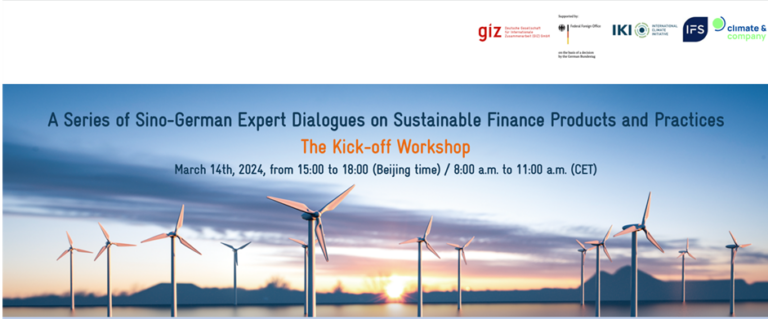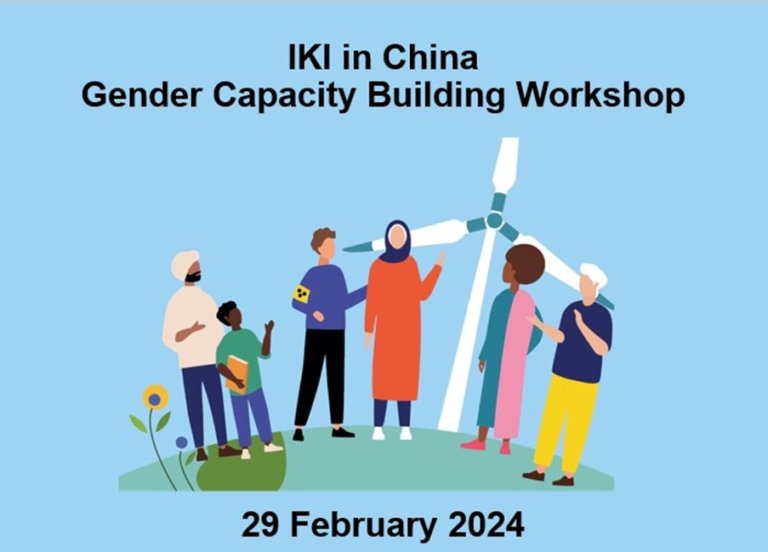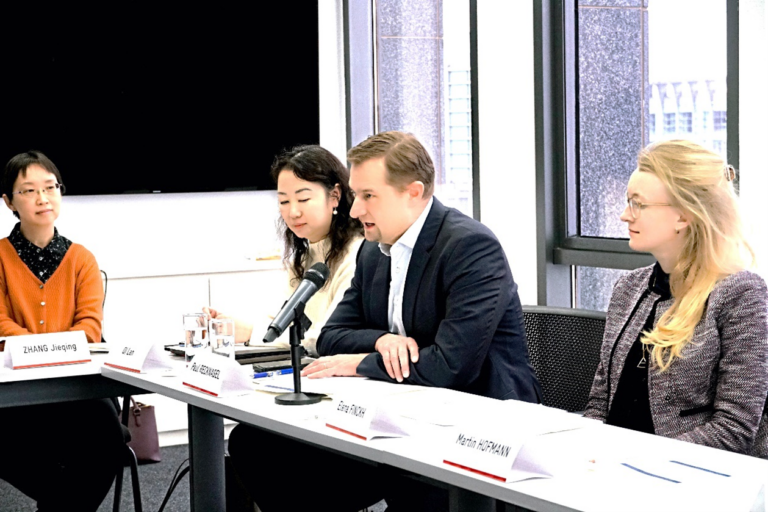To inform the “Sino-German Cooperation on Climate Change – NDC Implementation” GIZ commissioned international research institutes to conduct a series of studies on the topics of decarbonization and adaptation in the EU, Germany and China. Altogether five publications have been prepared by Climate Analytics, the NewClimate Insitute and Ricardo Energy & Environment.
The industrial sector in China accounts for the largest percentage of China’s energy use. Therefore, the sector is key for realization of the NDC targets and one can draw on valuable experiences from Europe to identify best practices for industrial decarbonization policies and technical measures.
Four of the studies cover the topic of decarbonization. One study goes into decarbonization policies on an EU level, one study covers the EU power sector, while two studies focus on the cement sector.
“Support to Sino-German Cooperation on NDC Implementation: Sectoral Best Practice – Summary of EU policies and measures targeting industrial decarbonisation”, completed by Ricardo Energy & Environment, introduces the decarbonization policies and measures on an EU level. It includes a summary of relevant EU governance systems, key aspects of the main policies and strategies, financing mechanisms to support decarbonization and just transition policies to minimize negative socio-economic impacts.
Climate Analytics’ study on “Decarbonisation Pathways for the EU Power Sector” explores the practices and opportunities for emission reduction in the sector with scenario analysis and case studies from three different countries as the European power sector is at the forefront of decarbonization within the EU’s economy.
NewClimate Institute conducted research on four different scenarios, their mitigation potentials and recommendations in their study “Decarbonisation Pathways for the EU Cement Sector”. The cement sector, as a major source of process emissions, is another important focus area for CO2 mitigation.
In “Support to Sino-German Cooperation on NDC Implementation: Sectoral Best Practice-Review of technologies: Cement sector” Ricardo Energy & Environment provides more details on decarbonization techniques and CCUS (Carbon Capture Use and Storage) for the cement sector and conducted a reduction potential assessment for China.
Apart from decarbonization, one study focuses on adaptation. Dr. Gerhard Rappold’s report prepared for GIZ entitled “Nationally Determined Contributions (NDC) Implementation – Climate adaptation good practice and lessons learned from Germany and the European Union” introduces, but also reviews the development of adaptation strategies in Germany and the EU. It furthermore provides good practices and lessons learned within climate change policies.
The report additionally discusses the technical outline for indicator development. Each indicator is accompanied by its own factsheet. Therefore, complementary to his report, Dr. Gerhard Rapold prepared for GIZ seven factsheets for the Metropolitan Region Ruhr, Hamburg, Saxony-Anhalt, Schleswig-Holstein, RESIN Climate Risk Typology, RESIN Adaptation Options Library and the PIEVC Program.
You can find links to the studies here:
- Ricardo Energy & Environment: Support to Sino-German Cooperation on NDC Implementation: Sectoral Best Practice – Summary of EU policies and measures targeting industrial decarbonisation
- Climate Analytics: Decarbonisation Pathways for the EU Power Sector
- NewClimate Institute: Decarbonisation Pathways for the EU Cement Sector
- Ricardo Energy & Environment: Support to Sino-German Cooperation on NDC Implementation: Sectoral Best Practice-Review of technologies: Cement sector
- Dr. Gerhard Rappold: Nationally Determined Contributions (NDC) Implementation – Climate adaptation good practice and lessons learned from Germany and the European Union
- Dr. Gerhard Rappold: Adaptation Fact Sheets



